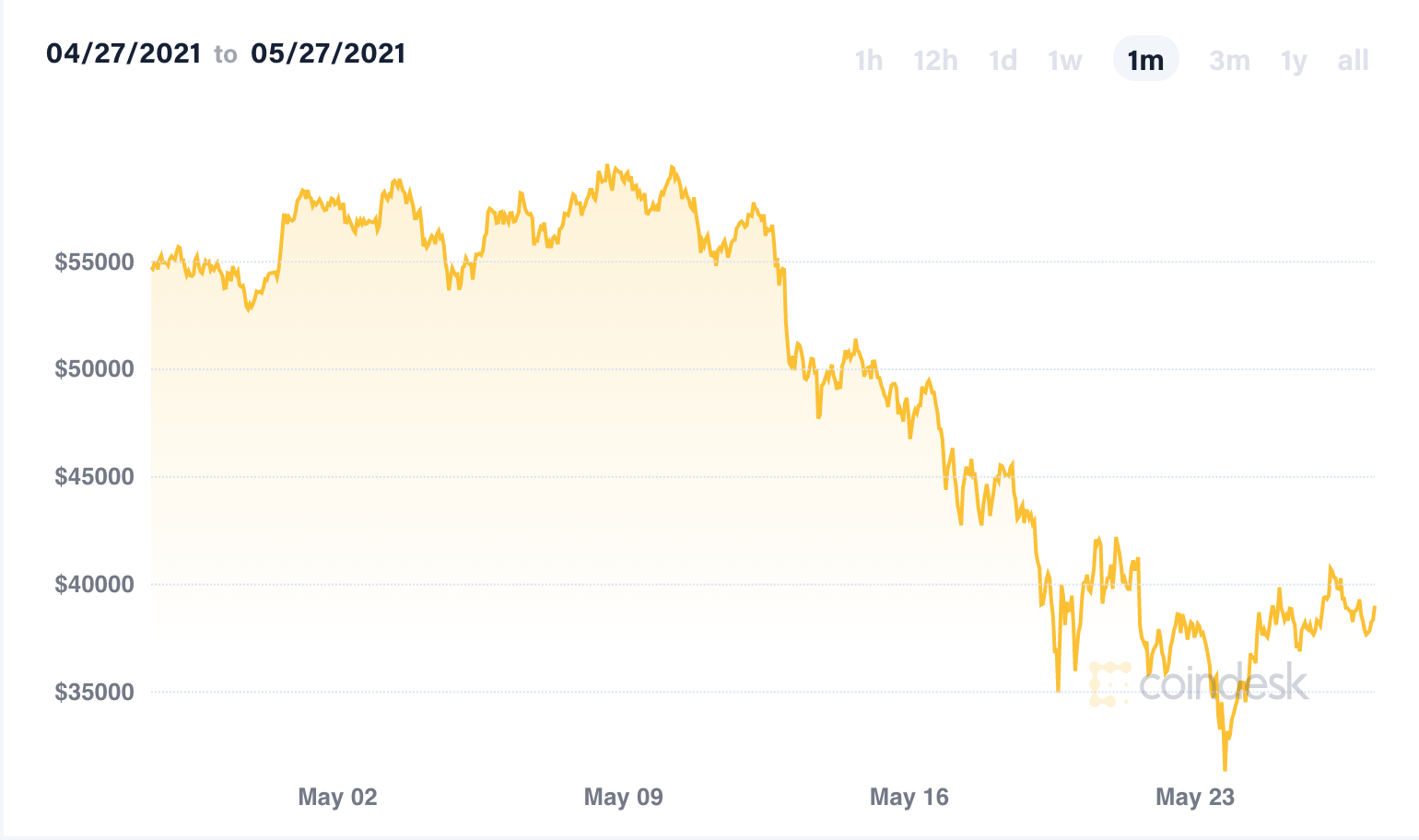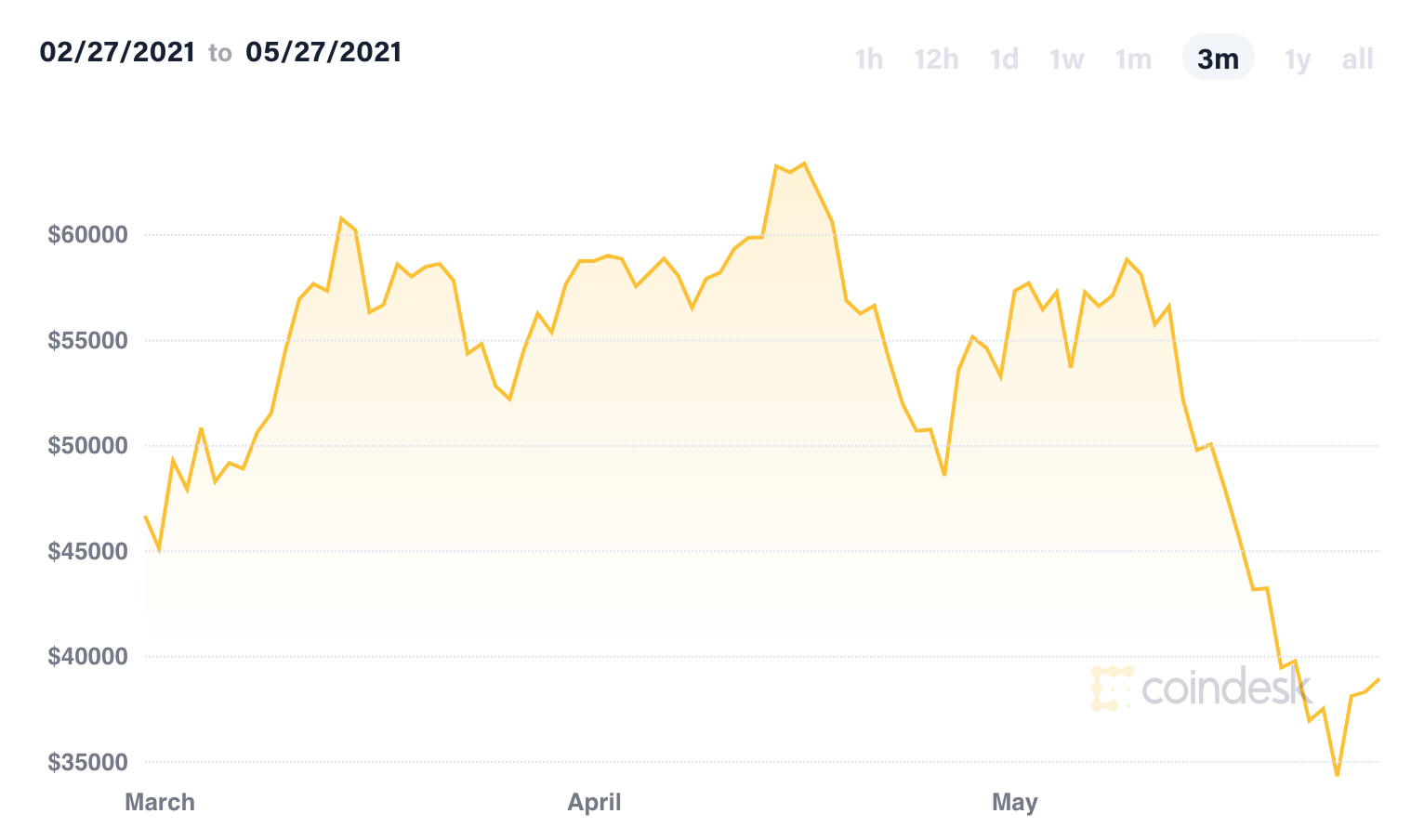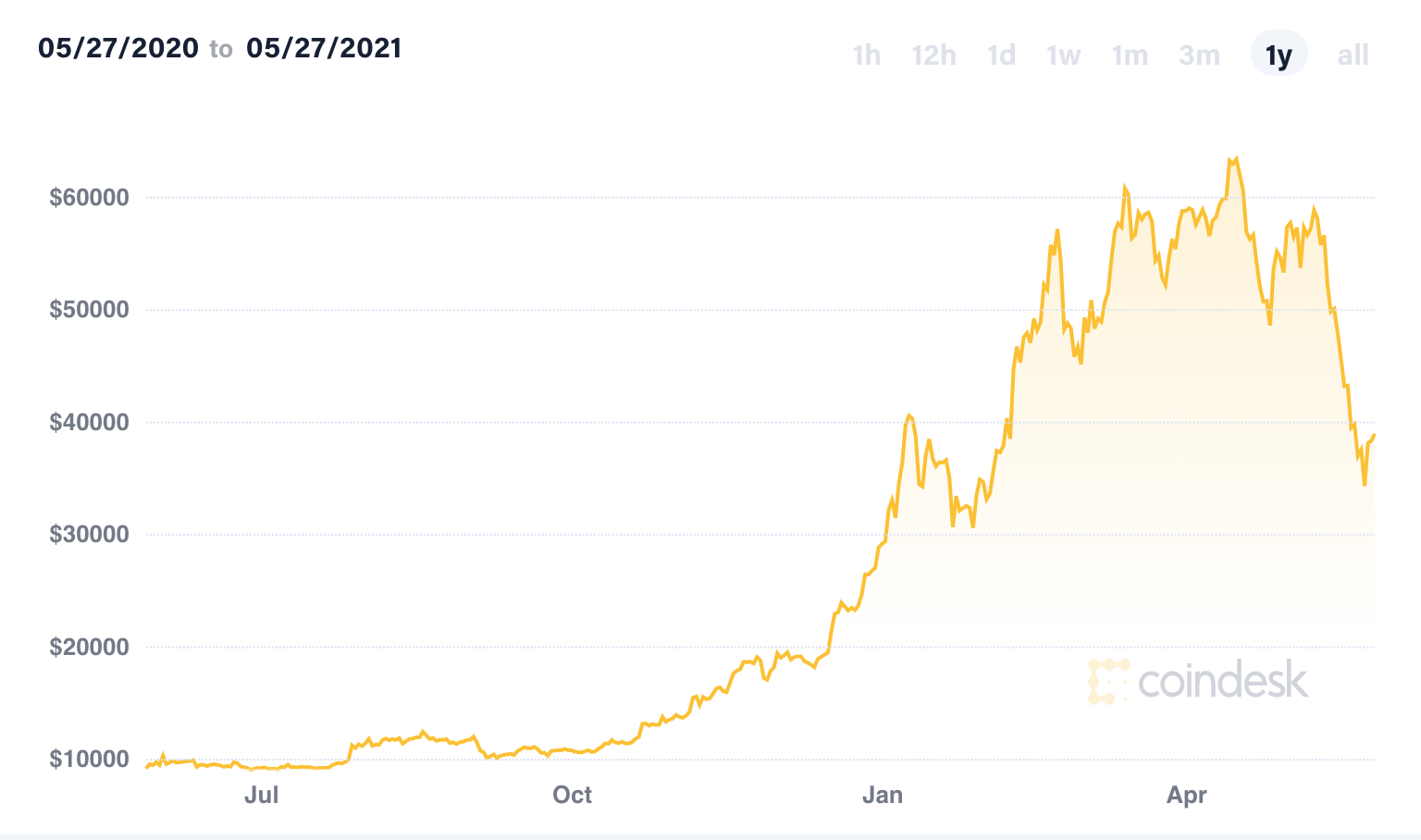Does Cryptocurrency Have A Secure Future?
Cryptocurrency has regularly hit the headlines in recent months, primarily due to Elon Musk’s activity: buying into Bitcoin, announcing customers can now buy a Tesla using cryptocurrency, then swiftly changing his mind, citing environmental issues that went against everything the Tesla brand stands for.
This story is fuelling debate around the cryptocurrency industry. The technology is there to support cryptocurrency (to a degree) but there remain wide concerns around the feasibility of crypto, and the environmental impact of the computing power it takes to “mine” cryptocurrency.
Undeniably, there are issues to overcome before cryptocurrency can become mainstream.
Read on for a closer examination of what cryptocurrency is, whether it’s an investment worth consideration, the hurdles it must overcome if it’s going to have a future, and where (and how) you can currently spend it.
What is cryptocurrency?
Cryptocurrency is a digital asset that you can buy, sell, spend and trade. An online ledger with strong cryptography secures online transactions, but the value is determined by supply and demand.
Cryptocurrency comes in the form of tokens or coins. Although some cryptocurrencies have started to venture into the physical world with credit cards, the majority of crypto assets remain intangible.
To understand cryptocurrencies, it’s first useful to define what money is. This can be broken into three parts:
- A store of value
- A unit of account
- A medium of exchange.
So, do cryptocurrencies share these characteristics?
Taking Bitcoin as an example, the value can rise or fall on any one day (+36% or -27% have been daily movements seen since 2013). Some accept that Bitcoin is a unit of account, but it’s so far failing to gain traction as a viable medium of exchange since few people trust it enough to use in daily transactions.
Cryptocurrency isn’t as simple as printing a banknote
Bitcoin and other cryptocurrencies are “mined”.
For example, Bitcoins can’t be printed like regular money and must be mined for, and this requires complex mathematics using a blockchain, which takes a huge amount of computing power.
Blockchain is a type of distributed ledger technology which, as the name suggests, relies on blocks of data in a chain. The chain is cryptographically secured and distributed through a network.
This short Bank of England video explains the blockchain process in more detail and also describes how “mining” works and how new units of currency, such as Bitcoin, are produced.
The 5 largest trading cryptocurrencies currently account for more than 80% of the market
| Asset | Category | Market Capitalisation | Total Supply |
| Bitcoin | Currency | $733.97B | 18.72M |
| Ethereum | Software platform | $323.92B | 116.04M |
| XRP | Currency | $101.08B | 99.99B |
| Tether | Currency | $62.31B | 62.25B |
| Cardano | Stablecoin | $55.36B | 31.12B |
Source: CoinDesk
While this all sounds great, and big-name companies keep jumping on the crypto bandwagon, the majority of the population shy away from cryptocurrencies because its foundations remain mysterious and confusing. And, compared to other investments, cryptocurrency is highly volatile.
If cryptocurrency is to go mainstream, there are multiple problems it needs to overcome.
5 things cryptocurrency needs to overcome to have a future
It needs to be greener
Mining cryptocurrency takes a huge amount of computing power, which makes it incredibly energy-intensive.
Talking about Bitcoin, President Biden’s top economic adviser described the currency as “an extremely inefficient way to conduct transactions,” adding, “the amount of energy consumed in processing those transactions is staggering.”
He’s right.
The reliance on power to generate cryptocurrency is a problem. Currency cannot be created without the underpinning blockchain technology, which is fundamental to the design of all cryptocurrencies.
Huge computing power – and therefore energy use – is built into the way the blockchain technology that underpins the cryptocurrency has been designed.
It relies on a vast decentralised network of computers. And Bitcoin’s energy consumption is over half the amount used by data centres worldwide.
To put it in perspective, the University of Cambridge Centre for Alternative Finance (CCAF) calculates that Bitcoin’s energy consumption lies between 40 and 445 annualised terawatt-hours (TWh).
The electricity consumption for the whole of the UK is a little over 300 TWh a year.
Add to this the fact that the electricity used by Bitcoin miners mostly comes from polluting sources and you can start to understand why this is such a huge problem that must be resolved before cryptocurrency can secure a firm foothold to become a valuable global currency.
Steps are being taken to address this issue. In May 2021, a Bitcoin Mining Council was created to improve the cryptocurrency’s sustainability. Bitcoin miners and Elon Musk are behind the move, with the Tesla CEO tweeting that the development was “potentially promising”.
The council will promote transparency around energy usage and encourage miners to use renewable energy sources.
Transacting power needs to be harnessed
Currently, most cryptocurrency transactions are done through conversion to fiat currency, such as the British pound or the US dollar. This process is clunky and can often be time-consuming.
Innovations are needed to make cryptocurrencies easier to spend. If it’s to go mainstream, transactions will need to be cheaper, more efficient, and easier to use.
This table highlights the problem:
| Payment method | Transactions per Second |
| Visa | 24,000 |
| Ripple (XRP) | 1,500 |
| Ethereum (ETH) | 20 |
| Bitcoin | 7 |
Source: Blockchain Council
Blockchain scalability issues will have to be addressed before cryptocurrency can become mainstream.
There are environmental issues in achieving this, but computing power and the technical complexity of calculations required may not be resolvable to the scale required.
It needs to be easier to trade
UK financial regulator the Financial Conduct Authority (FCA) has said: “There is growing evidence that crypto assets are causing harm to consumers and markets.” And, in a blow to the whole cryptocurrency sector, from January 2021, the FCA banned cryptocurrency derivatives and exchange-traded notes from being sold to retail investors.
Although it’s still possible to buy cryptocurrencies themselves, products cannot be sold based on cryptocurrency prices.
This highlights the concerns the FCA holds in regard to the difficulty consumers face in working out the real value and risks of these crypto products. They also highlighted the problem of market abuse and financial crime in the secondary market for crypto assets.
“The FCA is aware that some firms are offering investments in cryptoassets, or lending or investments linked to cryptoassets, that promise high returns. Investing in cryptoassets, or investments and lending linked to them, generally involves taking very high risks with investors’ money. If consumers invest in these types of products, they should be prepared to lose all their money.”
It needs to be regulated
In the UK, any business engaged in cryptoasset activities has to register with the FCA.
Businesses are allowed to apply for the “Authorised Payment Institutions” license. All cryptoasset businesses must comply with anti-money laundering (AML) and combating the financing of terrorism (CFT) measures under UK law.
The High Court now also recognises cryptocurrencies as property under UK common law.
However, there is no global agreement on how cryptocurrency should be regulated, and many countries have no current regulations or have banned cryptocurrency altogether.
China is the latest to impose a ban. In May, Beijing banned banks and payment firms from providing services related to cryptocurrency transactions.
They also issued a warning to investors against speculative crypto trading, which has been illegal in China since 2019. It is, however, still possible to trade currencies online and this concerns Beijing.
The news rocked the price of Bitcoin, which fell below $34,000 ($24,000) for the first time in three months.
You need to be able to spend it easily
While buying and selling cryptocurrency is increasing in popularity, the opportunities to spend these currencies remain limited, mostly due to its volatile nature. And only a handful of apps can actually facilitate payments.
A company daring enough to accept Bitcoin can put them in the headlines. And the number of companies accepting crypto as an official payment method is on the rise.
Cynics might say that companies who have found ways to accept cryptocurrency have done so as a PR exercise, rather than as a means of offering realisable value to their customers.
From big tech to ethical handmade soaps, here are a list of companies that will happily take your crypto payment.
Starbucks
Customers can use the new Bakkt app to pay for drinks and snacks at the coffee chain with converted Bitcoin. The roll-out followed extensive testing. According to Bakkt app, 500,000 people took up the invitation-only, early-access program to test the digital wallet as a method of payment.
Amazon
Amazon has joined other tech giants in preparing for its own exclusive cryptocurrency. For now, customers can buy Amazon vouchers through crypto-only company Bitrefill, which converts Bitcoin into gift cards and phone top-ups. To purchase goods from across the Amazon site, you can use Purse.io, which you can also use to get Bitcoin in return for making your order.
Sotheby’s
World-famous auction house Sotheby’s announced it would accept Bitcoin or Ether as payment when it presented Banksy’s artwork “Love Is In The Air” last month.
This was a first for physical artwork and is a positive sign towards change, at least in pushing crypto and the art world closer.
Visa
At the end of March, Visa confirmed it was trialling a scheme to accept cryptocurrency through platform Crypto.com, which would allow customers to settle transactions through its payment network. Only available in the US right now, if the move proves successful, it’s feasible to believe Visa will roll this out to more countries in years to come.
PayPal
PayPal users have been able to buy, sell or hold a handful of select cryptos since October 2020. Crypto you can use includes: Bitcoin, Ethereum, Bitcoin Cash, and Litecoin. You can keep track of your cryptocurrencies through the PayPal app, but this money can’t currently be transferred out of the PayPal digital wallet.
Coca-Cola
Australia and New Zealand have long been testing grounds for new innovations, and now Amatil, the Coca-Cola bottler and distributor in Asia-Pacific has enabled cryptocurrency payment using the Centrapay platform, who they have partnered with. There are more than 2,000 vending machines across Australia and New Zealand geared to accept crypto to pay for soft drinks.
Expedia
Travel giant Expedia has partnered with booking platform Travala in order to accept Bitcoin, along with more than 30 other different crypto payments. So, you can book your next hotel stay with your crypto of choice.
Lush
One of the first global companies to welcome the use of cryptocurrencies, Lush has allowed cryptocurrency payments on website orders since 2017. In partnership with Bitpay.com, you can buy fun, ethical and handmade cosmetics any way you want.
RNLI
There aren’t many charities cool enough to accept your cryptocurrency donation, but the Royal National Lifeboat Institution is leading the way.
Most of RNLI’s lifeboat staff are unpaid volunteers and 93% of all RNLI income comes from donations. Now you can use your Bitcoin to help train and equip lifesavers around the UK and Ireland.
Discover more places where you can spend Bitcoin using Spendabit, a search engine dedicated to help you spend Bitcoin and find the stores and businesses set up ready to take your Bitcoin payment.
Tesla have been busy with Bitcoin
So far this year Tesla have:
- Revealed it bought $1.5 billion (£1 billion) of the digital currency in February 2021
- Announced they would accept Bitcoin as payment in March 2021
- Suspended Bitcoin purchases in May 2021
The announcement from Tesla CEO Elon Musk, in a tweet on 12 May, caused the value of Bitcoin to fall by 10%. Tesla shares also dipped.
The move by Tesla to accept Bitcoin in March upset environmentalists and investors. And a couple of months later, it was environmental issues that Musk cited as reasons for pulling the use of Bitcoin for vehicle purchases.
“We are concerned about rapidly increasing use of fossil fuels for Bitcoin mining and transactions, especially coal, which has the worst emissions of any fuel,” Musk tweeted, adding, “Cryptocurrency is a good idea… but this cannot come at great cost to the environment.”
Is Bitcoin a good investment?
Below are three charts that show the performance of Bitcoin over one month, three months and a year.

Source: CoinDesk

Source: CoinDesk

Source: CoinDesk
You can see how cryptocurrencies have earned their volatile reputation. As with most investments, looked at over the shorter term, the losses sustained by potential investors were likely to be worse than those investing over the longer term.
If you invested in Bitcoin last year and could stomach the roller coaster ride of uncertainty, then you may have seen some good returns on your money.
Recent high values have made the headlines. In January 2014, an individual Bitcoin was worth $769.10 (£544.55). In December 2020, its price broke through the $20,000 (£14,160.79) mark for the first time, and in April this year it reached an all-time high of $64,829.14 (£45,902.16).
The current value of a single Bitcoin, at the exact time of writing, stands at $39,242.41 (£27,785.52).
The FCA estimate that nearly two million adults own, or have owned cryptocurrencies. The most popular reason they cited for consumers to hold cryptocurrencies was “as a gamble that could make or lose money”.
There are several reasons you might find cryptocurrencies a tempting proposition.
You might:
- See cryptocurrencies as the currency of the future and want to join the race to buy them now, before they potentially become more valuable
- Like that cryptocurrency removes central banks from managing the money supply
- Be attracted by the technology behind cryptocurrencies, the blockchain, the decentralised processing and recording system, which is thought to be more secure than traditional payment systems
- Like the way they appear to be rising in value, and care little about the currency’s long-term acceptance.
Cryptocurrencies are yet to reach a conclusion
There remain many unsolved problems with cryptocurrencies. The security, practical use and long-term viability are all unresolved questions, which is why financial regulators repeatedly warn investors to approach cryptocurrency with extreme caution.
There is no doubt that cryptocurrencies will remain in the headlines, and it will be interesting to see if, in time, mainstream investment houses will dare to dip their toes into crypto waters.
If you are interested in discussing the value of cryptocurrency as an investment, please get in touch. Email us at hello@firstwealth.co.uk or call 020 7467 2700.
This document is marketing material for a retail audience and does not constitute advice or recommendations. Past performance is not a guide to future performance and may not be repeated. The value of investments and the income from them may go down as well as up and investors may not get back the amount originally invested.
Let's Talk
Book a FREE 30-minute Teams call and we’ll answer your questions. No strings attached.
Check Availability



